|
On Wednesday, the third
of November, I didn't have any meetings at work in the morning
so I decided to head out to Iona, partly just to look around and
partly to try to get good photos of Ring-necked Ducks, which I
knew had been frequenting the north outer pond.
When I arrived, there
were still some patches of fog hanging around. Here's one lingering
to the north of the park.
|
|
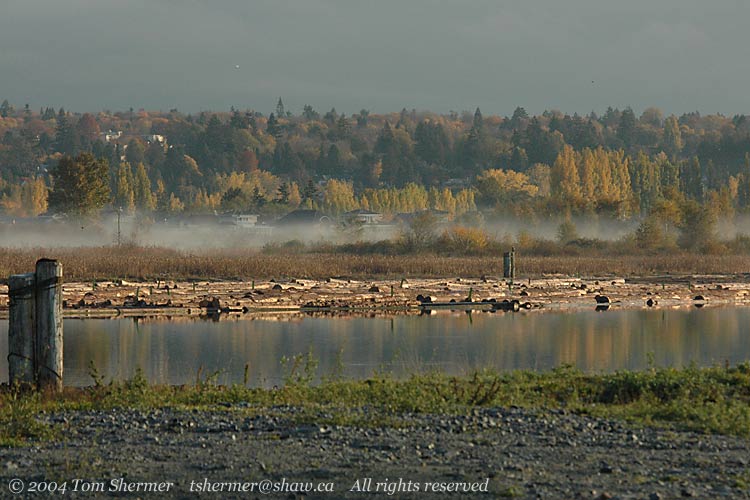 |
| To the south,
on the ocean side, there was a small flock of Dunlin that quickly
rose, flew about 30 meters, and settled back down. Here they are
in flight. |
|
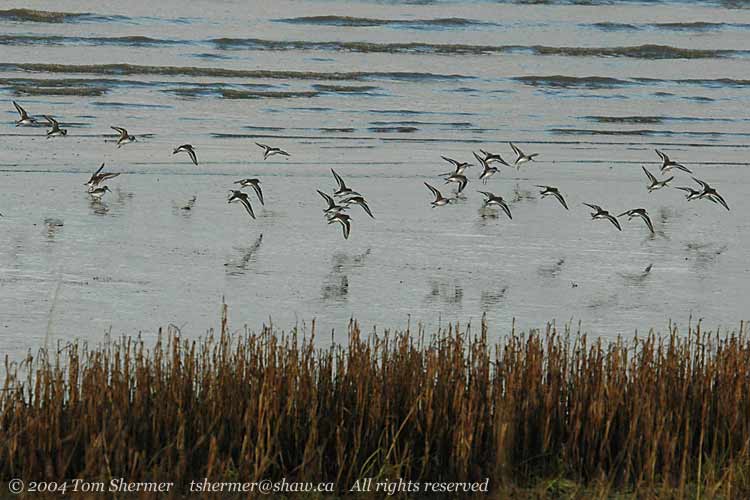 |
| I went in
the birder's gate to the inner ponds, and, like last time, found
a few gulls. This one's a Ring-billed Gull. |
|
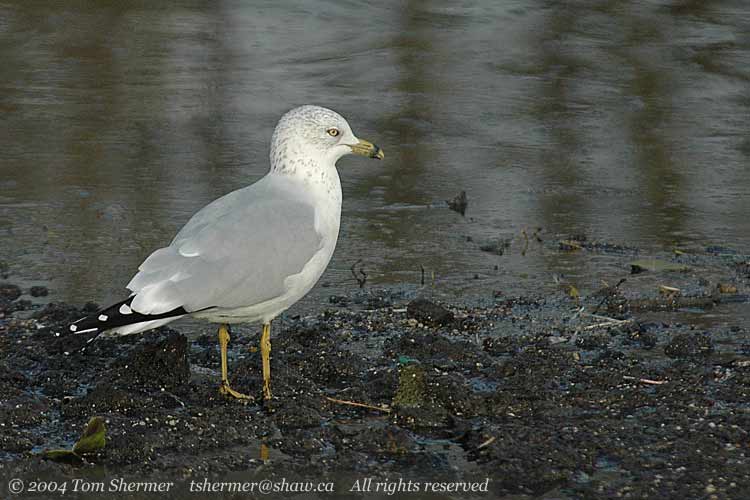 |
|
I was still hoping
to find a White-throated Sparrow that had been reported in the
area about a week before. So as I walked around the ponds, I was
taking photos of all the sparrows that I saw.
I saw this immature
White-crowned Sparrow,
|
|
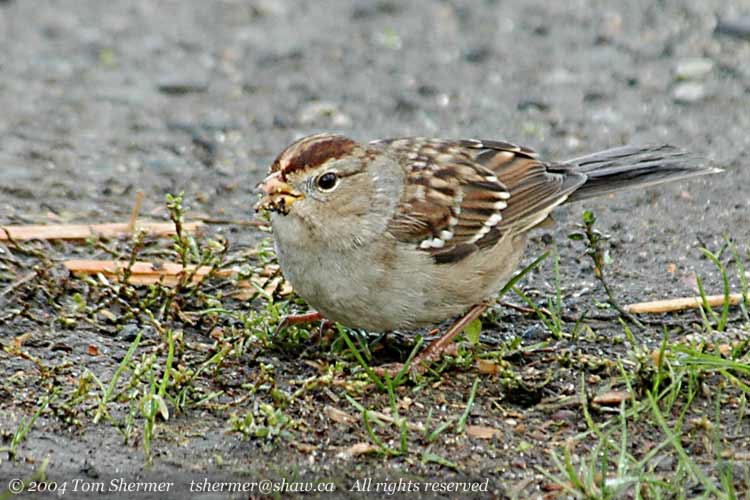 |
| this Spotted
Towhee (despite the name, it's a sparrow), |
|
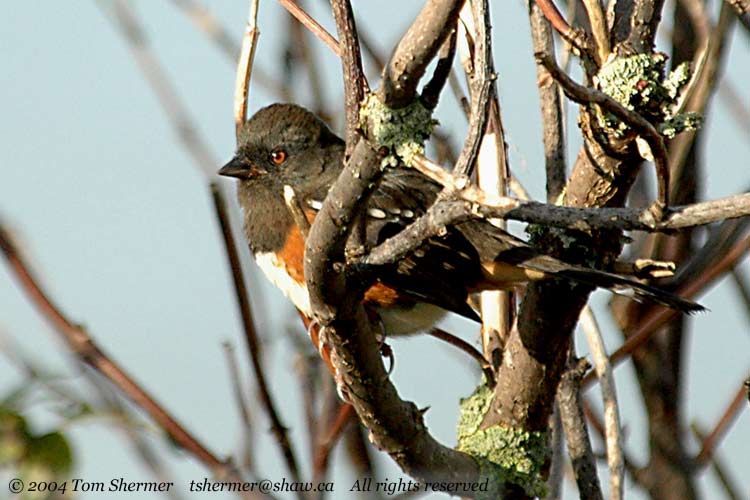 |
| this Fox
Sparrow, |
|
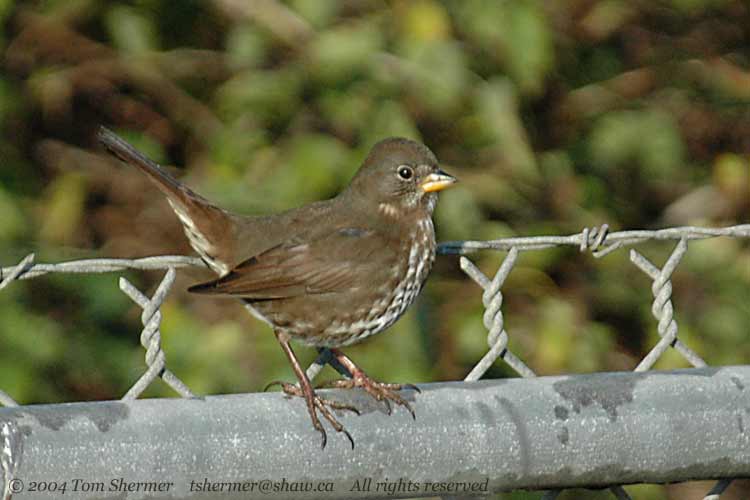 |
| this reddish-looking
Song Sparrow, |
|
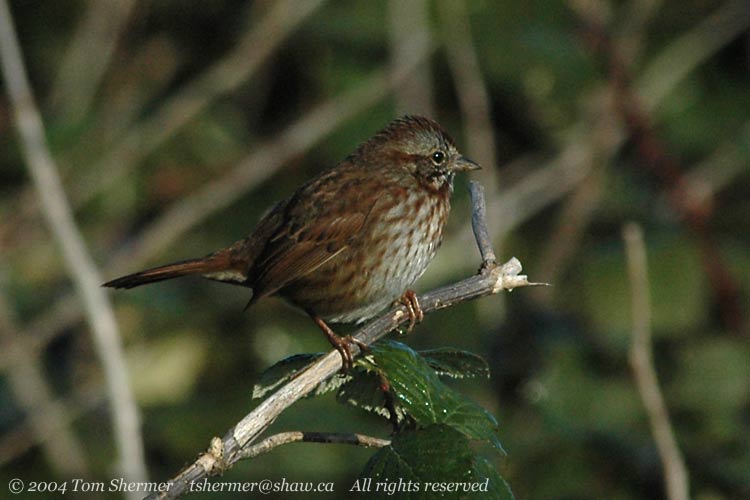 |
| this Golden-crowned
Sparrow, |
|
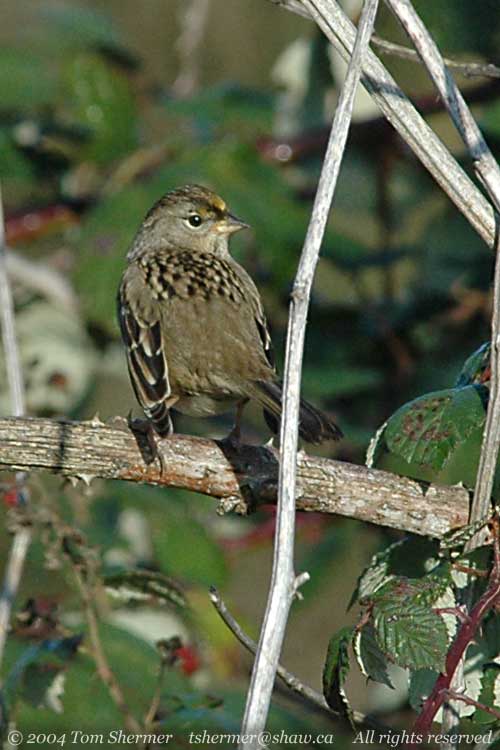 |
|
and this Lincoln's
Sparrow (which is probably the same one I saw on Sunday).
|
|
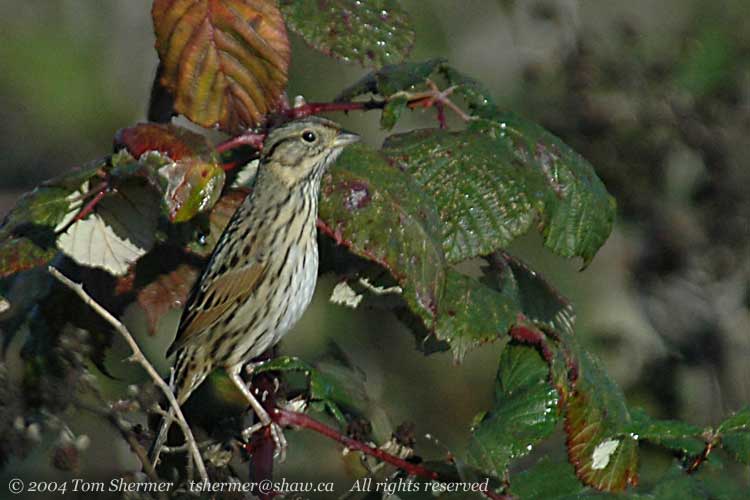 |
|
So I saw lots of sparrows,
but no White-throated ones.
The usual House Finches
were also around. This particular guy was being a little bit odd...I
can't remember seing House Finches on the ground--generally they're
up in trees or on bushes or vines. Maybe they do hit the ground
often and I just haven't noticed.
|
|
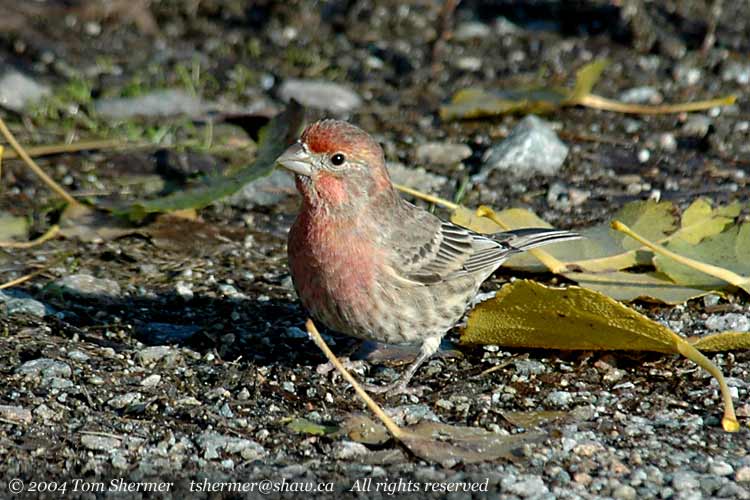 |
|
Time was moving on,
so I gave up on my search for the sparrow and went out to the
outer ponds to check on the Ring-necked Ducks. When I first arrived
at the north pond, I noticed several ducks swimming around, and
then a female Bufflehead flew from one side of the pond to the
other.
|
|
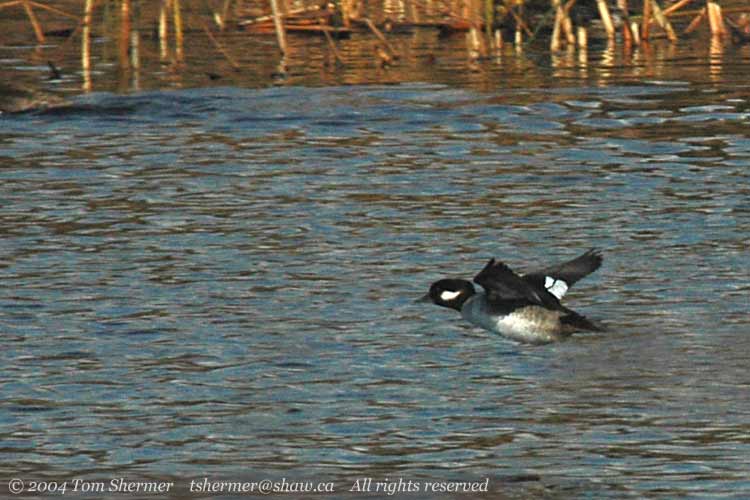 |
|
They're pretty fast
little ducks.
The Ring-necked Ducks
were out there, and I spent about ten minutes or so taking photos
of them. It was a bit tricky because there aren't any good lookouts
on the north pond. The tall grass and other vegetation was preventing
me from getting to the water's edge, and it was also obscuring
most of my view. I had to stand away from the pond on a small
hill and try to shoot between the taller clumps of plants.
Here's a male Ring-necked.
|
|
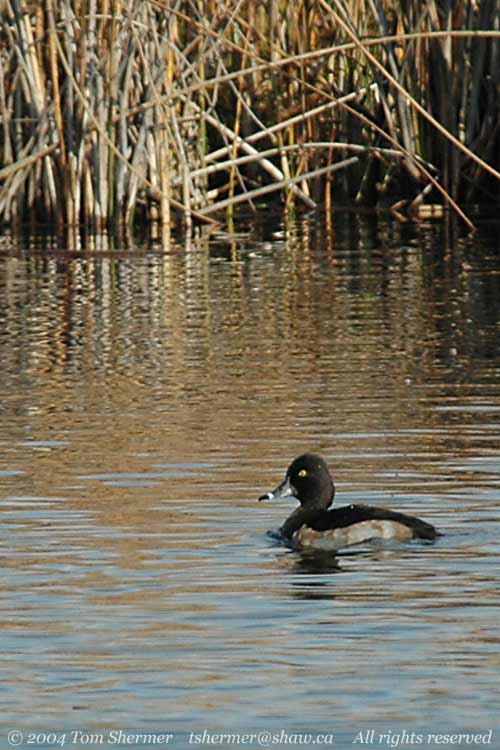 |
|
I may have said this
before, but I wonder why these ducks aren't called Ring-billed
Ducks instead of Ring-necked. The white ring on the bill seems
a much more prominent feature than the (nonexistent?) ring around
the neck. But then maybe they'd be confused with Ring-billed Gulls.
Oh well, I don't name 'em, I just take pictures of 'em. (Well,
I name a few of 'em...for instance, the one above is called Fred.)
Here's a pair, male
and female.
|
|
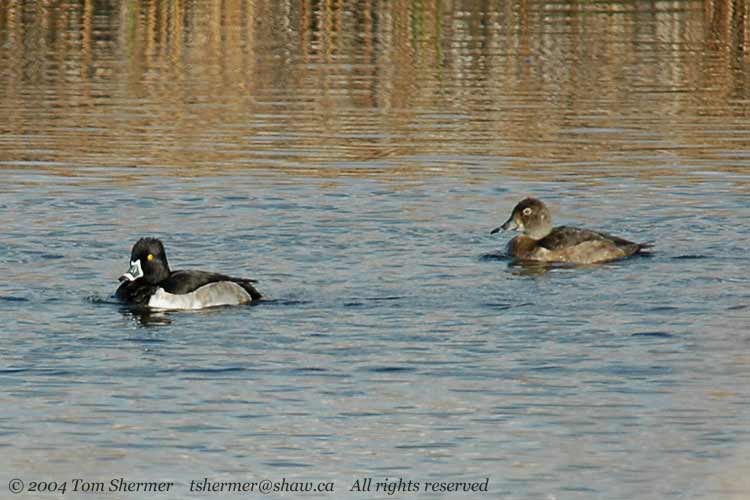 |
|
I was shooting the
Ring-billed Duck in the following photo when a Pied-billed Grebe
swam by. I hadn't noticed the grebe before.
|
|
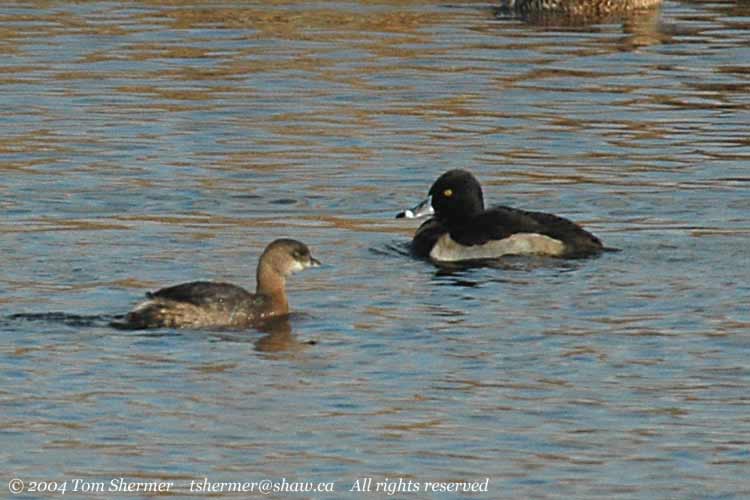 |
|
Aside from the Ring-neckeds,
who dominated the pond, the next most populous ducks on the pond
were Gadwalls, like this pair.
|
|
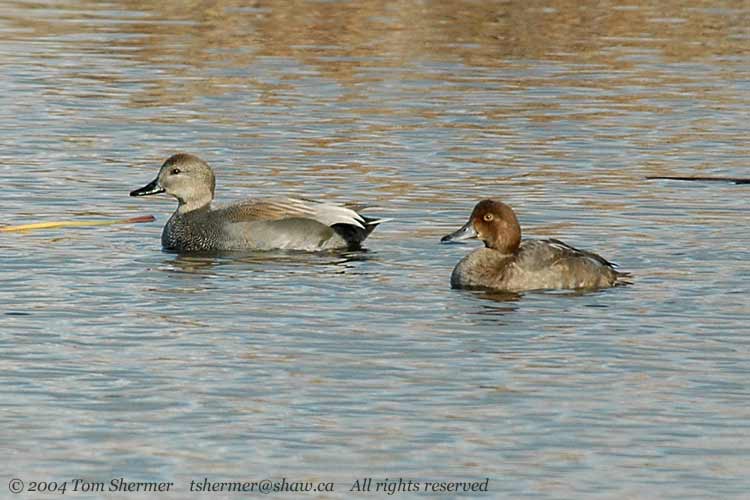 |
|
I got a little surprise
when I was taking a photos of a Gadwall--an American Coot popped
up from underwater right in front of my subject. The coot had
a bunch of grass (or some other plant) in his mouth, I know not
what for.
|
|
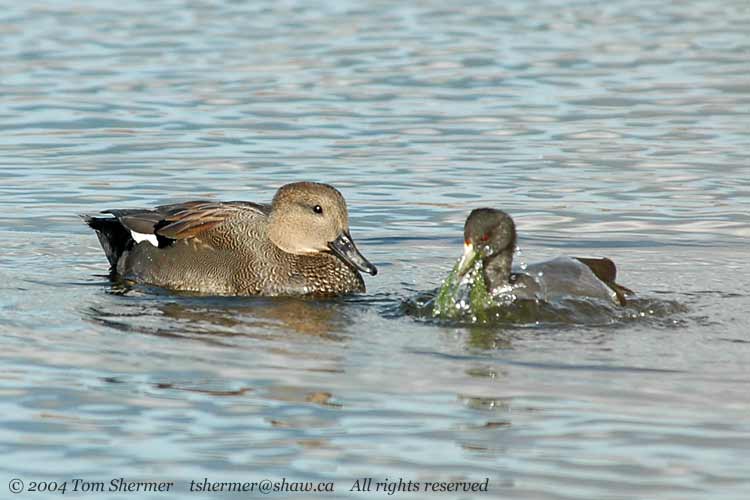 |
|
He soon dropped the
grass and paddled away. The ways of coots certainly are mysterious.
It was getting time
for me to paddle away, too, so I turned tail and headed for home.
Or for work. Or something like that.
All ringed out,
Tom
|
|